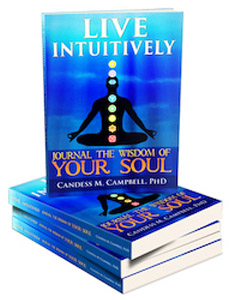Stress by Dr Candess M Campbell, #1 Best-selling Author, Intuitive Mentor, Speaker, and International Psychic Medium Healer.
Emotional signs and symptoms of stress include
irritability,
angry outbursts,
hostility,
depression,
jealousy,
restlessness,
withdrawal,
anxiousness,
diminished initiative,
hyper-vigilance,
feeling that things are not real,
lack of interest in things you used to enjoy,
crying outbursts,
being critical of others,
self-deprecation,
nightmares,
impatience,
lack of hope,
narrowed focus,
obsessive rumination,
lack of self-esteem,
insomnia,
and either overeating or loss of appetite.
Many people think about stress as being specific to negative happenings in their lives, but stress actually occurs from both negative and positive situations. In fact, your energy system picks up a great amount of stress without you even being aware. What’s wonderful, however, is that your body is amazing at moving back into balance.
You may remember a time when something happened suddenly and unexpectedly, and you immediately went into a heightened state of awareness. Your body is set up with a protective mechanism toward “fight” or “flight.” This reaction creates an outpouring of adrenaline and other hormones into your blood stream, which produces a number of protective changes in your body. This flood provides you with the energy and strength to either fight or flee from the situation. Here, your heart rate increases, allowing more blood flow to your muscles, brain, and heart. Your breathing also increases to a faster pace in order to take in more oxygen, and your muscles tense in preparation for action. You become mentally alert, and your senses become more aware so that you can assess the situation and act quickly. In addition to this, your blood sugar, fats, and cholesterol increase for extra energy. There is a rise in your platelets and blood clotting ability, which prevents hemorrhaging in case of injury.
Most of the time though, you don’t have this fight-or-flight response. Instead, there is a steady stream of stressors that increase and decrease as the day goes on. You become accustomed to the stress and then see it as normal, and all the while it is taking a toll on your body. You may find you compare yourself to others and then think that you don’t have it so bad, or that your stress is worse than others, which creates more stress. If this makes you wonder about your own stress level I have provided you with the Holmes and Rahe Stress Scale. It is a standard test developed initially in 1967 by two psychiatrists, Thomas Holmes and Richard Rahe. This test was published as the Social Readjustment Rating Scale (SRRS). Using Life Change Units (LCU), they were able to correlate the relationship between stress and illness in participants. In 1970, Rahe implemented another test, which assessed the reliability of the stress scale as a predictor of illness.
Take a moment to evaluate your stress level with this test – Life Events Stress Scale. Having taken the stress test, you may be surprised by the results. If you find you do not have many of the stressors listed but still struggle with stress, understand that although we share a human experience, we all experience life differently.
In addition to understanding what stresses you, you may also experience physical symptoms of stress such as increased heart rate, pounding heart, elevated blood pressure, sweaty palms, headache, trembling, twitching, stuttering, sleep disturbances, fatigue, shallow breathing, dry mouth, cold hands, itching, being easily startled, chronic pain, susceptibility to illness, and tightness in the chest, neck, jaw, and back muscles.
Emotional signs and symptoms of stress include irritability, angry outbursts, hostility, depression, jealousy, restlessness, withdrawal, anxiousness, diminished initiative, hyper-vigilance, feeling that things are not real, lack of interest in things you used to enjoy, crying outbursts, being critical of others, self-deprecation, nightmares, impatience, lack of hope, narrowed focus, obsessive rumination, lack of self-esteem, insomnia, and either overeating or loss of appetite.
In addition to taking the Holmes and Rahe Stress test mentioned earlier, before you make changes, figure out on a scale from 1–10 how stressed you feel in your life. Do this with 1 being little or no stress, 5 being a medium level of stress (or being stressed about half the time during the week), and 10 being a high level of stress (or being stressed daily). Make a note of your stress score in your journal so you can test yourself again after using some of the tools outlined for you.

Ways in which you can reduce stress:
01. Compartmentalize your life—focus on one thing at a time.
02. Set realistic goals and break projects down into manageable pieces.
03. Know your limits and prioritize.
04. Eat healthy and avoid sugary snacks.
05. Decrease or alleviate caffeine altogether.
06. Move your body.
07. Get enough sleep—7 or 8 hours a night is recommended.
08. Decrease or alleviate alcohol altogether.
09. Get massage or receive healthy touch.
10. Become a non-smoker.
11. Practice relaxation.
12. Share with friends.
13. Journal.
14. Create play in your life!
15. Listen to your body and your emotions.
This is just a beginning for you to start reducing stress in your life. Often when you change your behaviors, you do not notice a difference at first. You may want to put this list on the refrigerator or a mirror and practice for six months to see how your life changes. Then assess your stress level on a scale from 1–10 again and see how much you have improved. You know your body more than anyone else. Taking an inventory of yourself can be life changing! A short video that teaches you to ground your energy and relax is at Link. You can do this daily to teach your body to relax. For more information 12 Weeks to Self-Healing: Transforming Pain through Energy Medicine.
Live Intuitively: Journal the Wisdom of your Soul!
Candess M. Campbell, PhD is the author of the #1 Best-selling book on Amazon, 12 Weeks to Self-Healing: Transforming Pain through Energy Medicine and Live Intuitively: Journal the Wisdom of your Soul. She is an internationally known Author, Speaker, Intuitive Coach and Mentor and Psychic Medium. She specializes in assisting others to regain their own personal power, develop their intuition and live a life of abundance, happiness, and joy.
She specializes in DNA Activation and Karmic Clearing with a group of Ascended Masters called The Lords of Karma who include the Great Divine Director, El Morya, St. Germain, Maitreya, Kuthumi, Athena, Kwan-Yin, Clyclopea, Mary, Sananda and Lady Portia. Candess has been guided by this group of Masters since she was young.
At the core of her business, Vesta Enterprises, Inc., is the belief that all healing is self-healing and that becoming conscious and making positive changes increases one’s personal power and enjoyment of life. Firmly maintaining that people grow and benefit from feeling safe and receiving, her life’s work is in bridging spirituality and mainstream beliefs to promote and foster healing at all levels. http://energymedicinedna.com
www.amazon.com/candessmcampbellphd
© Dr Candess M Campbell




One Reply to “Dr Candess M Campbell – Stress”